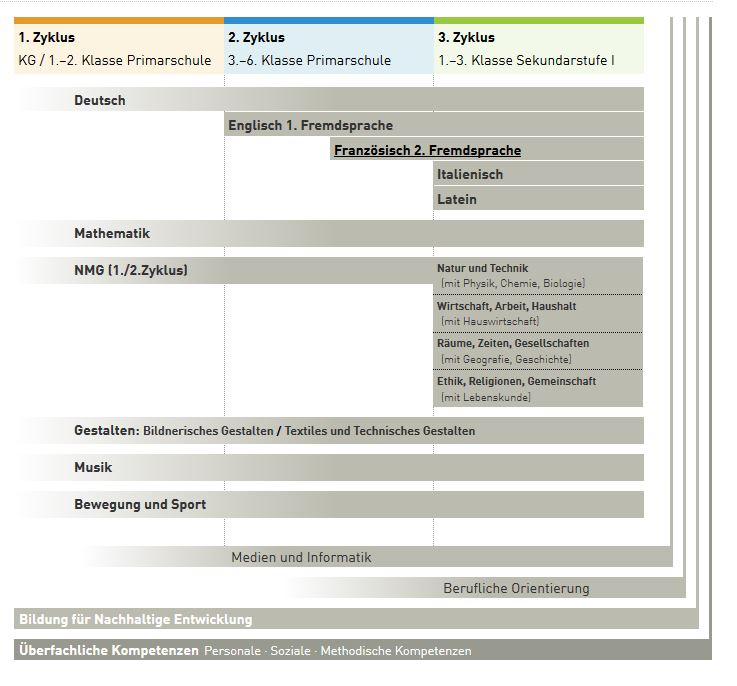For those of us who send our kids to the local schools, this year was saw the launch of the much talked about Lehrplan 21.
So what exactly is the Lehrplan 21?
The Lehrplan 21 was created to harmonise the education system between the 21 German speaking cantons in Switzerland who up until now were each pretty much in charge of their own school system meaning that should a child transfer from one canton to another they would potentially have to adapt to a whole new curriculum.
Whilst they were at it the education department decided to modernize the whole system and now instead of focusing on academic knowledge the much lauded words are “learning skills” and “competencies”, i.e. a more “hands on” and practical approach to learning.
The values embraced by this concept are the following:
- A world vision which is humanistic and democratic.
- The concept should remain neutral about politics, religions and beliefs.
- Encourages all pupils to receive the same opportunities.
- Promotes gender equality.
- Is against any form of discrimination.
- It awakens and promotes the understanding for social justice, democracy and the protection of the environment.
- Promotes mutual respect especially when it comes to culture, religion and lifestyle.
- The concept takes on the various learning skills of each child and works constructively towards meeting their needs.
The Lehrplan 21 focuses on the learning of:
- Languages: first German, then English, French and Italian or Latin. (Although this may change depending on the results of the upcoming referendum.)
- Mathematics: in a hands on form versus purely conceptual.
- Nature, People & Society (NMG): the children learn about their environment and how to cope in society.
- Arts: Children should learn how to be creative.
- Music and finally
- Sports.

What does this mean for your child?
On paper less homework but longer hours at school. Last year when Isabelle was in 3rd grade she got homework 3 times a week, this year it’s only twice, as the feeling is that they are getting a more practical approach in the classroom thus learning faster. The content is also a bit less “classic” with more homework based on her observing the world around her and less learning by rota.
The system has many detractors who deplore the loss of emphasis on academic studies so the next couple of years will probably feel a bit like an experiment for both teachers and children alike. Let’s hope that it works out!
You can get more information here.



